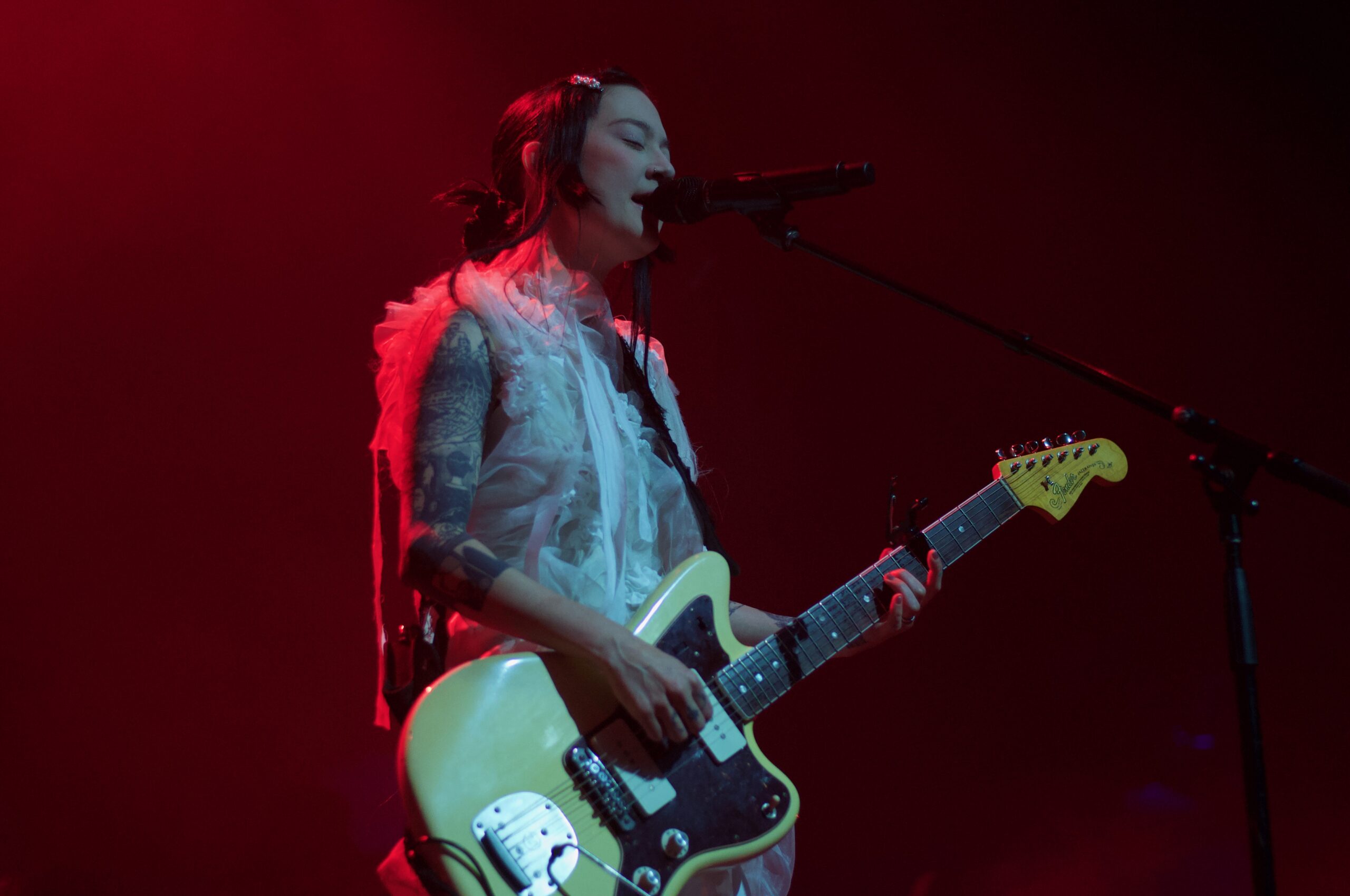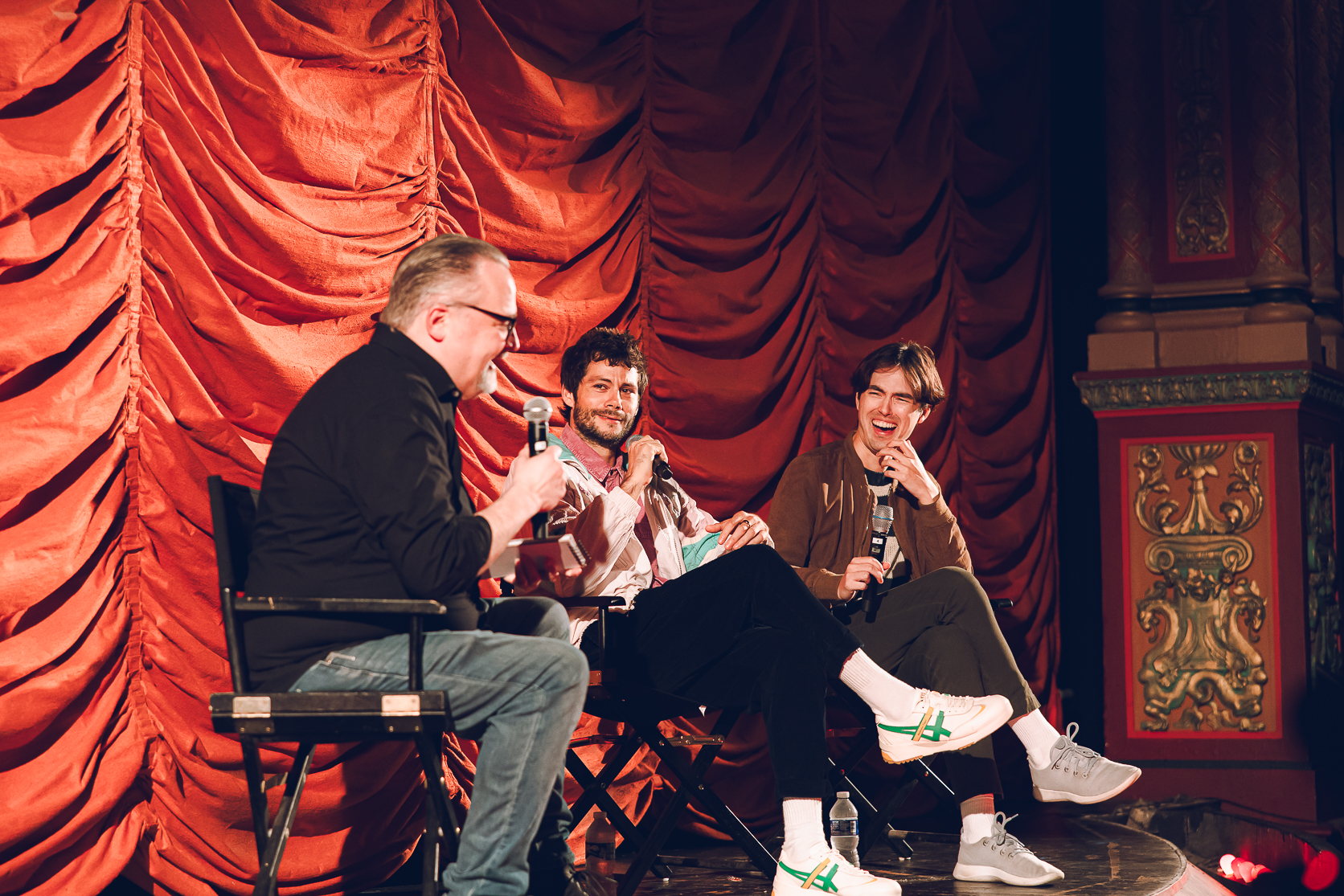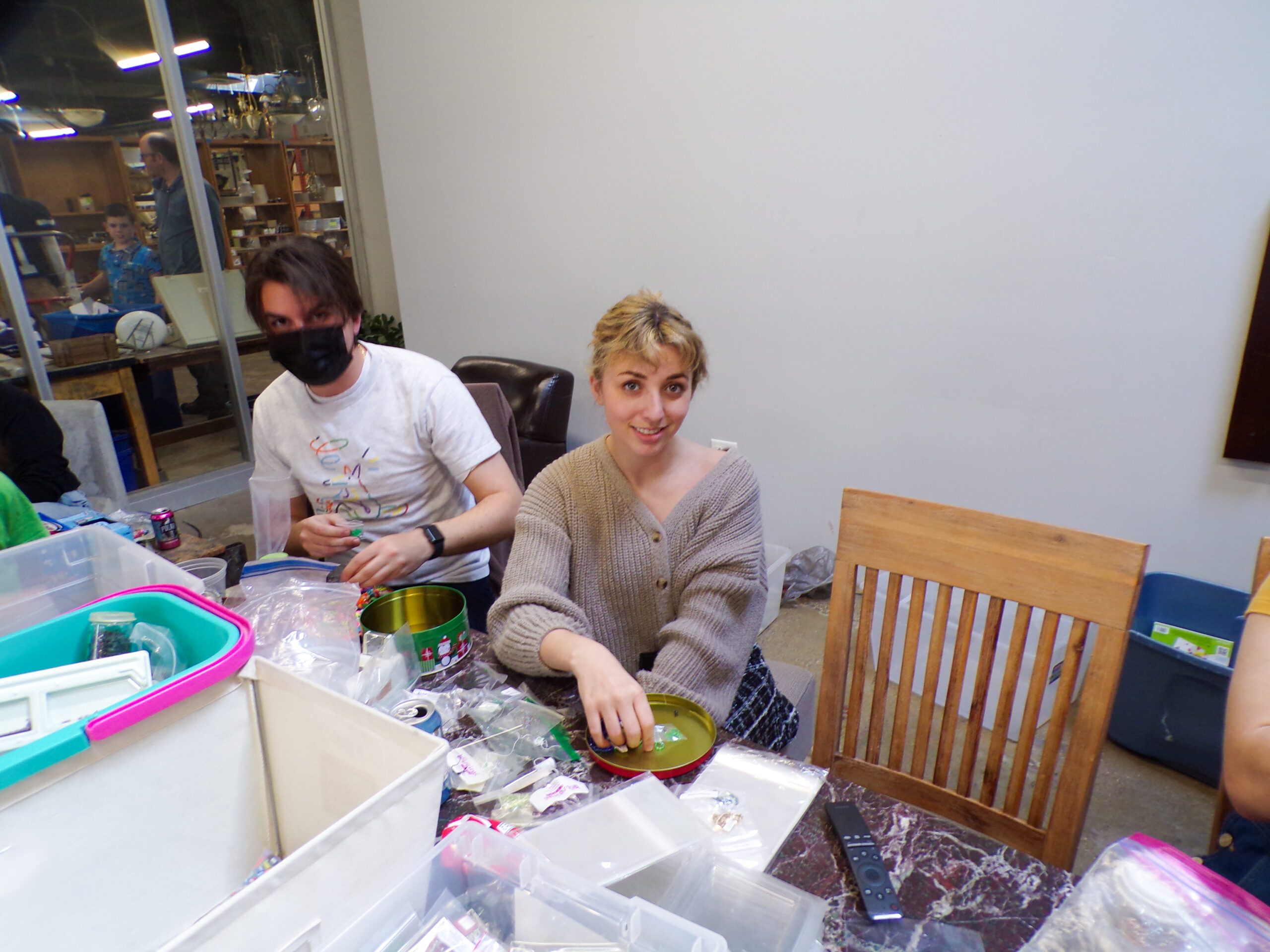Suiting up into thick cotton canvases is common for Rogers Park residents Katje Sabin and Bill Gilliland when they want to collect their favorite thing — honey from their backyard.
Suiting up into thick cotton canvases is common for Rogers Park residents Katje Sabin and Bill Gilliland when they want to collect their favorite thing — honey from their backyard.
After moving 10 times within the span of 15 years, Sabin and Gilliland have firmly planted themselves — and their garden — in Rogers Park. Since the move, their home has become a residence for bees as much as it is for family. Alongside their garden, the pair manages three beehives from which they sold honey to locals this past summer.
“I shouldn’t be called a beekeeper — I’m more like a bee host,” Sabin said. “There’s nothing on the planet that will keep those bees if they do not want to stay there. We convince them that it’s in their best interest to stay with us and that it’s okay to share a little honey with us in return.”
Their sustainable sanctuary and honey-making hotspot landed Sabin and Gilliland the Chicago Excellence in Gardening Award Sept. 24. This award recognizes garden-loving Chicagoans who “make our city a healthier, more beautiful and more sustainable place,” the organization’s website reads.
“When people move to a new place, the first thing they do is plant a garden,” Sabin said. “It’s how you say, ‘OK, I’m home. We’re putting our roots down.’”
By receiving the award, the city of Chicago recognizes the garden as upholding their motto of “Urbs in Horto,” meaning “city in a garden.”
“Our bees are an integral part of our award-winning garden, and we are so pleased to finally be able to share this bounty with our neighbors,” Sabin wrote in her Sept. 19 post to the Rogers Park Neighborhood News Facebook group.
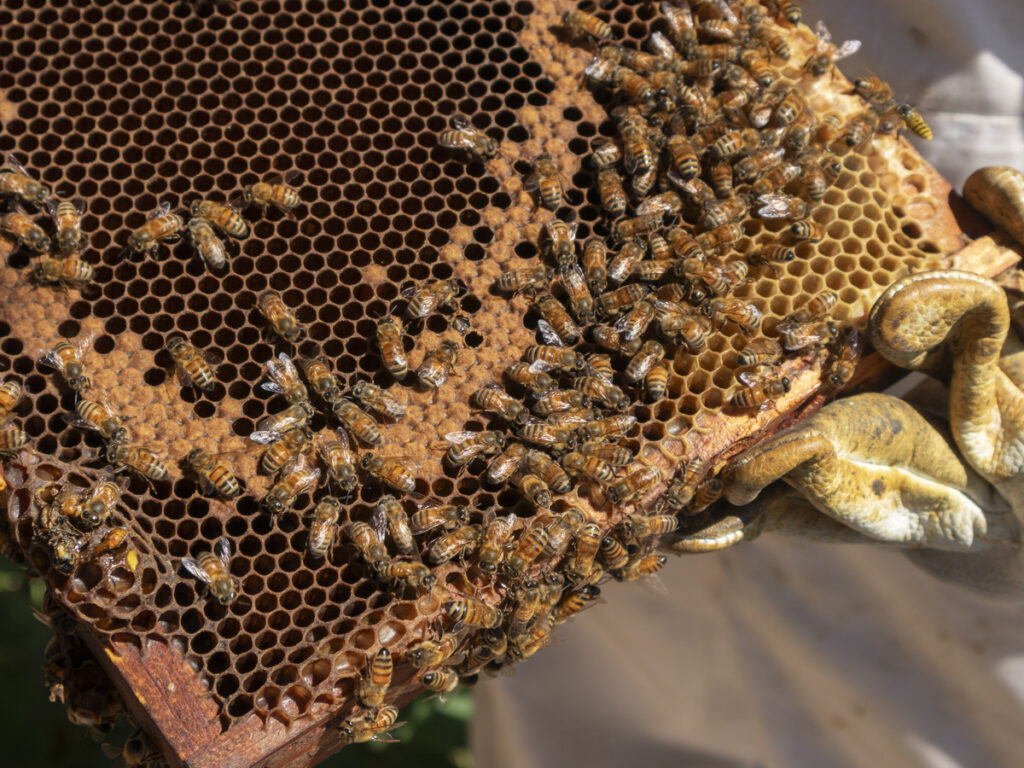
Both Sabin and Gilliland said they moved to Rogers Park for its “liberal community” in 2014. Despite the initial nerves of settling in a new neighborhood, Sabin said she found community while working for the Howard Area Community Garden at 1715 W. Juneway Terrace.
Throughout her first year in 2014, Sabin said she started talking to the other gardeners about getting bees to boost pollination. She began her first hive in spring 2015 and began another at the community garden in 2016.
The Howard Area Community Garden received the 2017 Chicago Excellence in Gardening Award, making her recent award feel like a “full-circle moment,” Sabin said.
In 2020, the couple pursued their hive-owning hopes. The two said they felt supported by the Rogers Park community from the start.
Gilliland and Sabin operate three hives total, which are enclosed in stacked boxes in their backyard. Inside each hive are 10 wood frames, nine of which are where the bees deposit nectar into honeycombs.
The 2023 season was their first harvest ever. The couple sold 25 hand-bottled 1-pound jars of honey through the Rogers Park Neighborhood News Facebook group — selling out within minutes, according to the couple.
“It was intense and wild,” Sabin said. “I kept getting calls and texts about our honey, and I had to shut it down. It’s really awesome to see that the community is so interested in supporting urban beekeeping and urban agriculture.”
Audra Eisinbanazek has lived next to Sabin and Gilliland since 2019. The two are “very friendly neighbors and friends,” Eisinbanazek said.
Prior to installing the bees next door, Eisinbanazek said Sabin and Gilliland asked for her permission. She agreed to help support pollination and acknowledged honeybee hives are dying in the city.
“If we can get some healthy hives going anywhere, I think that’s great,” Eisinbanazek said. “The bees themselves are actually quite nice as neighbors because they just want to go about their business.”
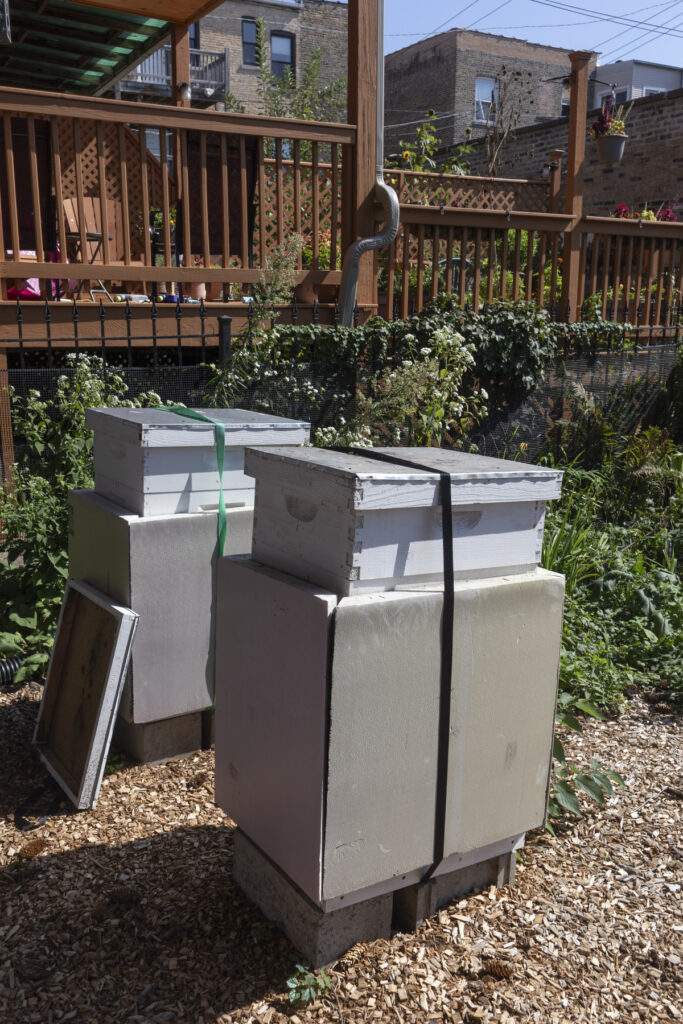
Along with catering to customers’ honey-purchasing needs, the couple discovered a way to turn their venture into an academic opportunity for DePaul University students.
Gilliland, a DePaul biology professor, said he stumbled upon two vacant greenhouses by accident after pressing an elevator button labeled “GH.” DePaul granted the couple permission to initiate a plant sale within the greenhouses for the Howard Area Community Garden, and because it was a success, DePaul has given the couple access to utilize those greenhouses since.
For the 2023-24 academic year, DePaul granted Gilliland permission to curate box hives at the school, similar to Gilliland and Sabin’s hive design at home. DePaul’s hives will be taken from Sabin and Gilliland’s bees, and if the new hives do well, Gilliland will run a class on placing and managing hives and community garden outreach — supporting DePaul’s community agricultural outreach initiative, according to Sabin.
The academic aspect of hosting bees is important to both Sabin and Gilliland. Through DePaul University’s support, Sabin said she feels like her and Gilliland’s philosophy of “learning by doing” is represented.
“If someone wants to bring their kids to see where honey comes from so they don’t think it comes from a little bear shaped jar, I am so down for that,” Sabin said.
While Chicago’s agricultural community is a bonus to raising a bee haven in an urban area, Sabin said neighbors are something beekeepers in rural areas don’t have to consider as heavily.
“We would have never put these hives back here if our neighbors were not on board,” Sabin said. “They’ve been terrific the whole way.”
Witnessing Rogers Park neighbors enjoy their honey has been a thrill for the couple, according to Sabin. The pair said they are open to curious visitors who request to visit their hives.
Featured image by Maura Green / The Phoenix





